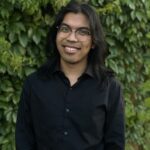
More than meets the eye: Finding the sacred in the mundane
In the fall of 2022, I took a class at Wilfrid Laurier University called Stories and the Sacred. As the name suggests, the course was a blend of a literature and a religion class. However, the content was not necessarily about literature or religion exclusively. Instead, the course outlined several individuals throughout history and mythology who had, in one way or another, come to experience the sacred.
The Merriam-Webster Dictionary defines the word “sacred” as something “dedicated or set apart for the service or worship of a deity.” This definition implies the attachment of religion to the word, which is what most people think of when they hear sacred. It is certainly what I initially thought when starting the class.
However, the dictionary also defines the term as something “highly valued and important.” This more general description is closer to the definition used in my class. There, the sacred was defined very loosely as something that provides purpose or meaning, a force that humans inherently yearn for.
The course focused on individuals’ experiences with the sacred. The one who immediately stood out to me was Hypatia. She was a mathematician, astronomer and philosopher who lived in Alexandria from 355-415 CE. Her philosophy was Neoplatonist which, simply put, revolved around the existence of the One. This was a separate reality that was only partially accessible to humans through abstractions known as Platonic Forms.
Hypatia’s philosophy may sound like a religious concept. However, it wasn’t the part of her life that the course deemed sacred.
Hypatia was the greatest mathematician and astronomer of her time and the only woman to ever hold the title. Her work with geometry specifically is what the course identified as sacred – the field she worked most extensively in. This is the work that gave her life purpose, what she spent years studying and later sharing with her students.
There are many individuals in the course who, similar to Hypatia, found the sacred in what may seem mundane to others. We learned about people who encountered the sacred in music, sculpture, poetry, mathematics and even love.
What interested me most was how none of these individuals directly attached the word sacred to their pursuits. Instead, they used words like duty, passion and power. While they might not have seen their work as sacred, the words they used eventually led to the same meaning. They were driven by longing and a desire to continue on the path that gave them purpose.
Reflecting back on this course, my main takeaway is this: the sacred can be found anywhere. Any course you pursue in life that fills you with wonder and provides meaning can be seen as sacred.
Seeing my goals and passions in this way has given them a greater sense of importance. To me, they provide meaning and help me make sense of what can otherwise be a confusing and cluttered life.
At the end of the day, Stories and the Sacred is just one of the many courses I took during my time at university. It hasn’t given me the answers to all of my questions, and it hasn’t completely changed the trajectory of my life. However, it has offered me a new outlook on things I see as ordinary – things I have gotten so used to that I sometimes take them for granted. For example, I used to see the art I created as just another hobby. Now, I see my experience with my art as something more. The act of creating gives me a sense of fulfillment, and it is something I cannot imagine ever abandoning.
Encounters with the sacred don’t have to be grand events. They can be found in the everyday things you love. The passions I have, like literature and art, aren’t just mundane life occurrences. While these may seem like ordinary interests, they have the potential to be sacred, and that is one of the most important things that school has ever taught me.
About the author

Kyle Quilatan
Kyle is a writer for Youth Mind who studied English at Wilfrid Laurier University. When he’s not writing, he enjoys art and music.





